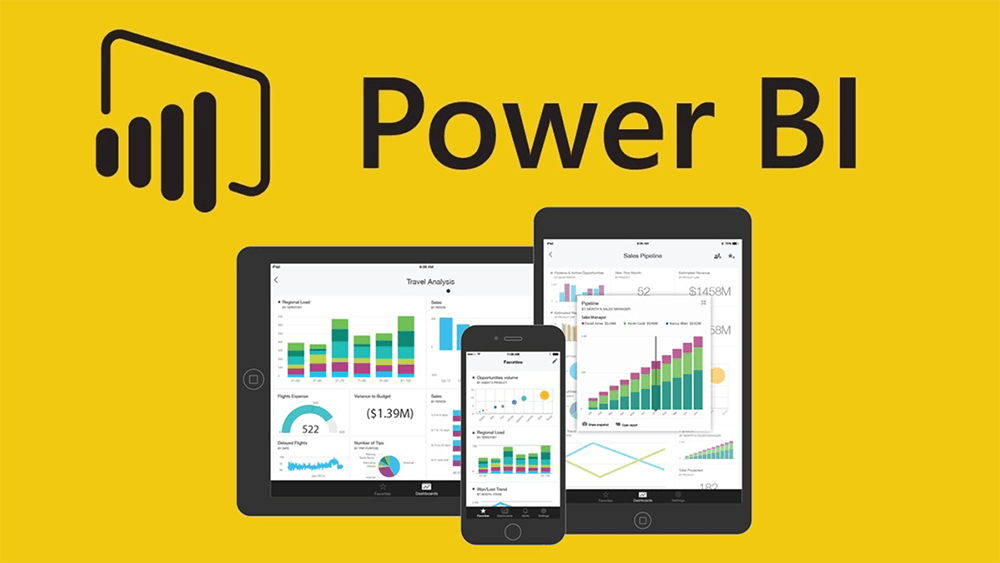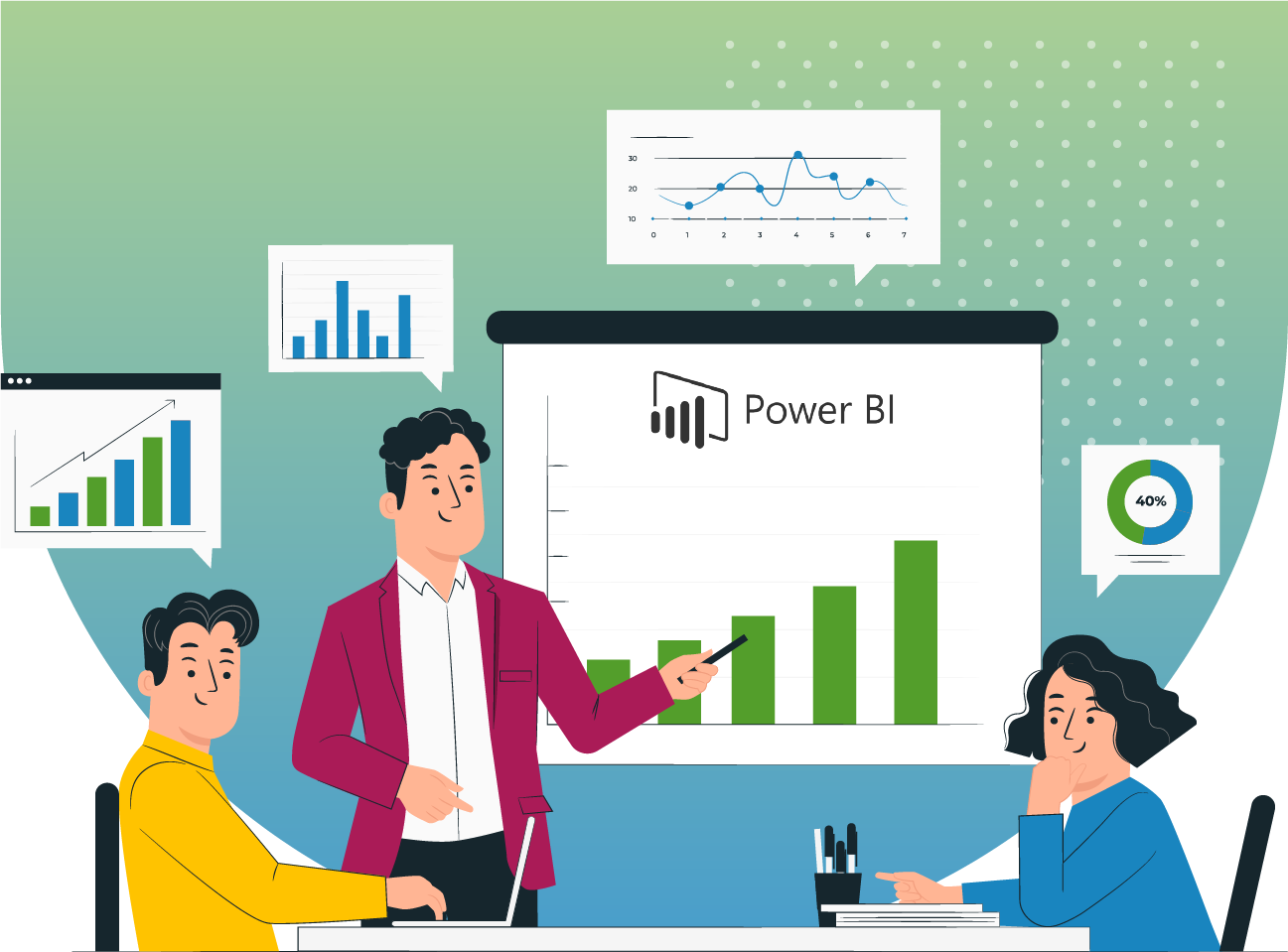Integrating Power BI with ERP and CRM Systems

Strong 8k brings an ultra-HD IPTV experience to your living room and your pocket.
In today’s fast-paced business landscape, companies are seeking ways to streamline operations, enhance decision-making, and boost efficiency. Integrating Power BI with ERP (Enterprise Resource Planning) and CRM (Customer Relationship Management) systems is a key strategy that enables organizations to gain deeper insights and make data-driven decisions.
Power BI, a powerful business analytics tool from Microsoft, allows users to visualize and share data across various systems. When combined with ERP and CRM systems, it transforms raw data into actionable insights. In this article, we’ll explore the benefits of integrating Power BI with ERP and CRM systems, the role of Power BI consulting services, and how businesses can maximize their potential through Microsoft Power Apps consulting services.
The Importance of Integrating Power BI with ERP and CRM Systems
What Is an ERP System?
ERP systems integrate various business processes—finance, inventory, procurement, and human resources—into a unified system. They serve as a central repository for data, providing real-time visibility into business operations. However, many ERP systems have limitations in terms of data analysis and reporting.
What Is a CRM System?
CRM systems, on the other hand, are used to manage customer relationships and interactions. They help companies track customer data, sales processes, and communications. Like ERP systems, CRM tools generate a lot of data that is essential for business growth but can be overwhelming to analyze without the right tools.
Why Integrate Power BI with ERP and CRM Systems?
While ERP and CRM systems store vast amounts of data, it’s challenging to derive meaningful insights without an advanced analytics tool. Power BI serves as a bridge between these systems, enabling businesses to:
Consolidate data from multiple sources: Power BI allows businesses to pull data from ERP and CRM systems and combine it in one place for comprehensive analysis.
Create interactive reports and dashboards: With Power BI, users can create customized reports and visual dashboards that provide real-time insights into business performance.
Improve decision-making: By analyzing data from both ERP and CRM systems, businesses can make better decisions based on accurate and up-to-date information.
Monitor key performance indicators (KPIs): Power BI enables businesses to track KPIs more effectively by integrating data from various departments like finance, sales, and customer service.
Benefits of Power BI and ERP/CRM Integration
1. Enhanced Data Visibility
Integrating Power BI with ERP and CRM systems allows organizations to access a unified view of their business data. This integration provides transparency into processes, enabling management to identify bottlenecks and optimize performance across departments.
2. Data-Driven Decision Making
With Power BI, companies can visualize data trends and patterns that would otherwise be difficult to detect in ERP and CRM systems. The ability to create predictive models and generate real-time insights enables proactive decision-making, improving overall business strategy.
3. Customized Reporting
Power BI’s customizable reporting features allow organizations to create dynamic dashboards tailored to their specific needs. Whether it's tracking inventory levels through ERP data or analyzing customer behavior using CRM data, Power BI offers flexible reporting that empowers business leaders.
4. Seamless Data Sharing
Power BI integrates seamlessly with Microsoft tools such as Microsoft Power Apps and Microsoft Dynamics 365. This integration allows teams to collaborate more effectively by sharing reports and insights across departments. Businesses can also leverage Microsoft Power Apps consulting services to develop custom applications that improve productivity and data flow between systems.
5. Scalability and Flexibility
Power BI offers scalable solutions, making it suitable for businesses of all sizes. Whether your company uses an on-premise or cloud-based ERP/CRM system, Power BI can integrate seamlessly. Furthermore, companies looking to expand their business intelligence capabilities can benefit from Power BI consulting services, ensuring a smooth integration process and maximizing the system's value.
How Power BI Consulting Services Support ERP and CRM Integration
Integrating Power BI with ERP and CRM systems may seem daunting, especially for businesses with complex data ecosystems. This is where Power BI consulting services come into play. Experienced Power BI consultants can guide organizations through the integration process, ensuring that they harness the full potential of both Power BI and their ERP/CRM systems.
Key Services Provided by Power BI Consultants:
Data Integration: Consultants assist in linking Power BI with multiple data sources, including ERP, CRM, and other business systems.
Custom Dashboard Creation: Experts create tailored dashboards and reports that provide valuable insights based on business requirements.
Performance Optimization: Consultants help optimize system performance by ensuring smooth data flow between Power BI and ERP/CRM systems.
Training and Support: Consultants provide training sessions for employees, ensuring they understand how to use Power BI effectively to interpret data and generate actionable insights.
Microsoft Power Apps: Enhancing the Power of Power BI
Alongside Power BI, Microsoft Power Apps offers businesses the ability to create custom applications that interact with their ERP and CRM data. Power Apps is a development platform that enables businesses to build tailored applications without needing extensive coding experience. This makes it ideal for automating workflows and enhancing business processes.
How Microsoft Power Apps Consulting Services Can Help:
App Development: Microsoft Power Apps development services help businesses build custom applications that cater to specific business needs, such as automated workflows and mobile apps for on-the-go data access.
System Integration: Power Apps consulting services ensure that custom applications integrate smoothly with Power BI, ERP, and CRM systems for a unified user experience.
Improved Efficiency: With custom apps, businesses can streamline operations, improving data access and reducing manual processes.
Conclusion
Integrating Power BI with ERP and CRM systems can revolutionize the way businesses handle data, improving decision-making, operational efficiency, and data transparency. Whether you are looking to get more out of your ERP and CRM systems or want to create custom applications to enhance your business processes, leveraging Power BI consulting services and Microsoft Power Apps development can help you achieve your goals.
Investing in these tools is not only a way to improve data analysis but also a strategic move toward digital transformation, enabling your organization to stay competitive in today’s data-driven world.
Note: IndiBlogHub features both user-submitted and editorial content. We do not verify third-party contributions. Read our Disclaimer and Privacy Policyfor details.







